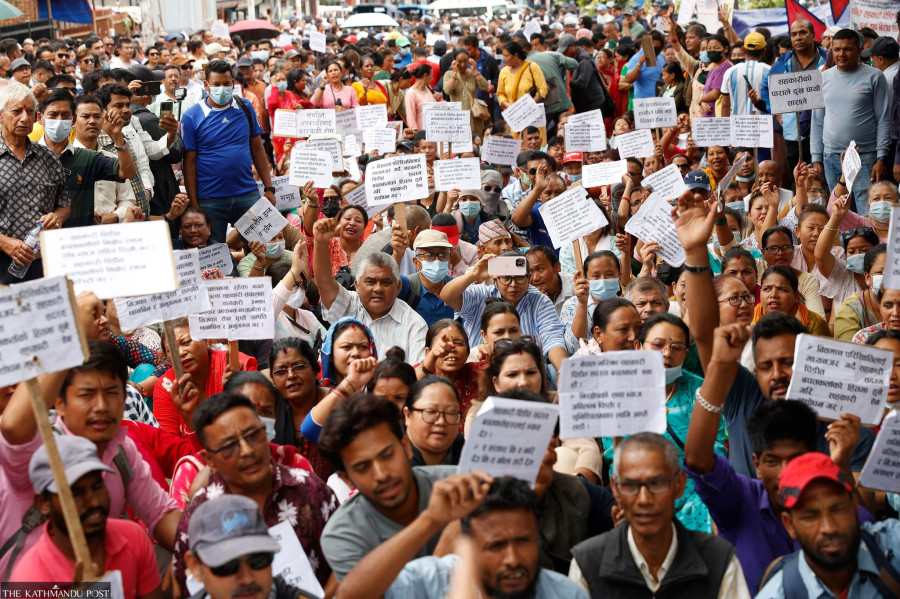Editorial
Rein in the co-ops
Tardy regulation of cooperatives is giving rise to grave social and economic problems.
An enduring image of 2023 will be the sight of hundreds (perhaps thousands) of protesters from all over Nepal who marched on the streets of Kathmandu asking the federal government to act against the operators of cooperatives who had swindled them. They also asked for a swift return of their deposits. The government did listen to them—in a way. Following two months of protests, a seven-point agreement was signed at the start of August. As per the deal, representatives from among cooperative victims would be inducted into the government’s ‘cooperative sector reform suggestion task force’. If need be, laws would be amended to improve the sector, while the process for setting up a ‘deposit and credit guarantee fund’ would kick off. Three months down the line, there is little progress on these fronts. Instead, one after another scandal of cooperatives swindling depositors of billions of rupees continues to surface. The latest among these concerns a string of cooperatives run by the kith and kin of one GB Rai. These institutions illegally transferred billions of rupees in deposits in the name of Gorkha Media Network that runs Galaxy 4K Television (where Rai is the chairperson).
As other avenues of investments have dried up, more and more people are parking their money into cooperatives in pursuit of high interests. Individual depositors have saved billions of rupees, which beats the whole idea of cooperatives. The idea behind cooperatives is to have a basket fund for small-time depositors which they can rely on during emergencies. The government at all three tiers were also happy to look the other way, as the promoters of cooperatives amassed fortunes and pumped them into private business ventures. Many of these promoters were connected to top politicians and the money from these institutions invariably flowed into the coffers of nearly all the big and small political parties. But then, the Ponzi scheme could only last so long. As the investments of promoters tanked, they had no way of paying back the depositors. Hundreds of such promoters, including Rai, are now on the run. The sordid state of affairs is sure to continue so long as politicians and political parties feel comfortable benefitting from the money of cooperatives that zigzags its way into their pockets.
The wilful neglect of a fundamental pillar of Nepali economy will prove costly, for the economy (with the money from the cooperatives being used in all kinds of fly-by-night businesses) and the big and mighty associated with them (as the likes of Rai and Rastriya Swatantra Party chairperson Rabi Lamichhane, Rai’s one-time associated at Galaxy 4K Television, are now finding out.) This is why strong regulation of over 23,000 cooperatives registered in Nepal will serve everyone well. This can be done either through a new cell at Nepal Rastra Bank, the central bank, or by setting up a separate, autonomous regulatory entity. As cooperatives fall under the concurrent jurisdiction of all the three levels of the governments, it is also vital to clear up who is supposed to do what. There must be no further delay; Nepal’s cooperatives are time-bombs waiting to explode.




 9.7°C Kathmandu
9.7°C Kathmandu














